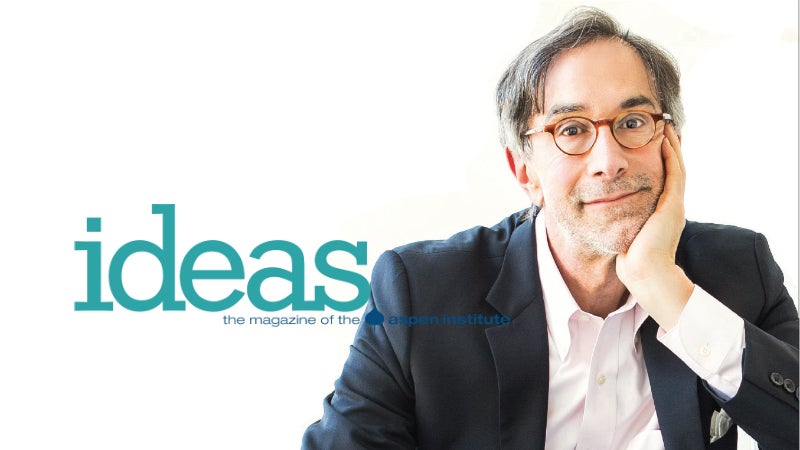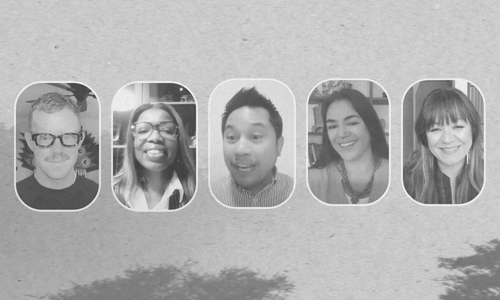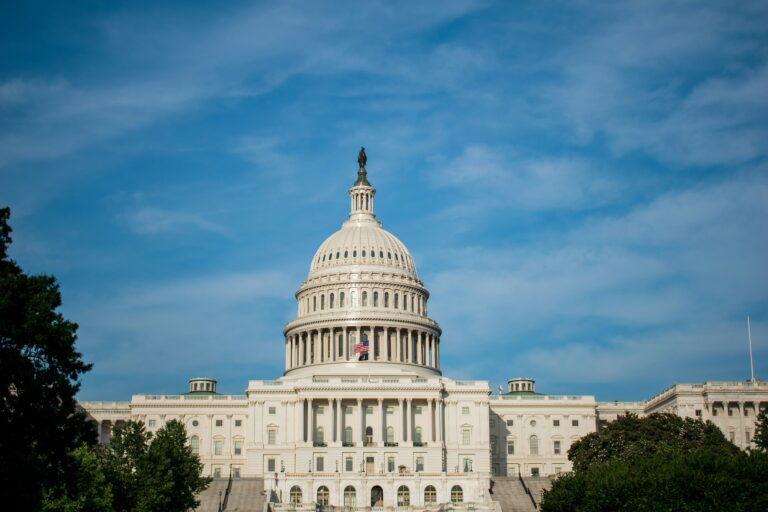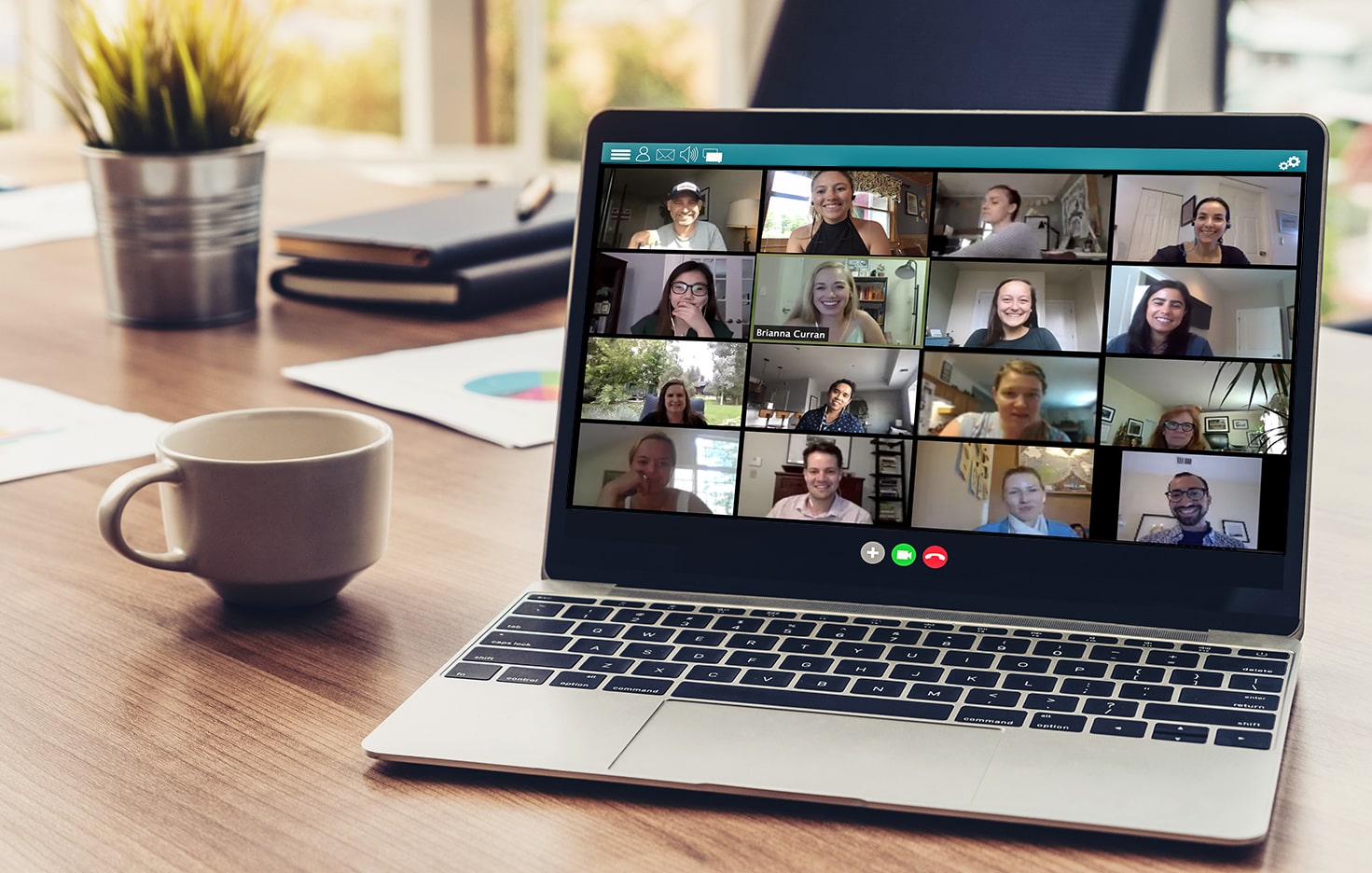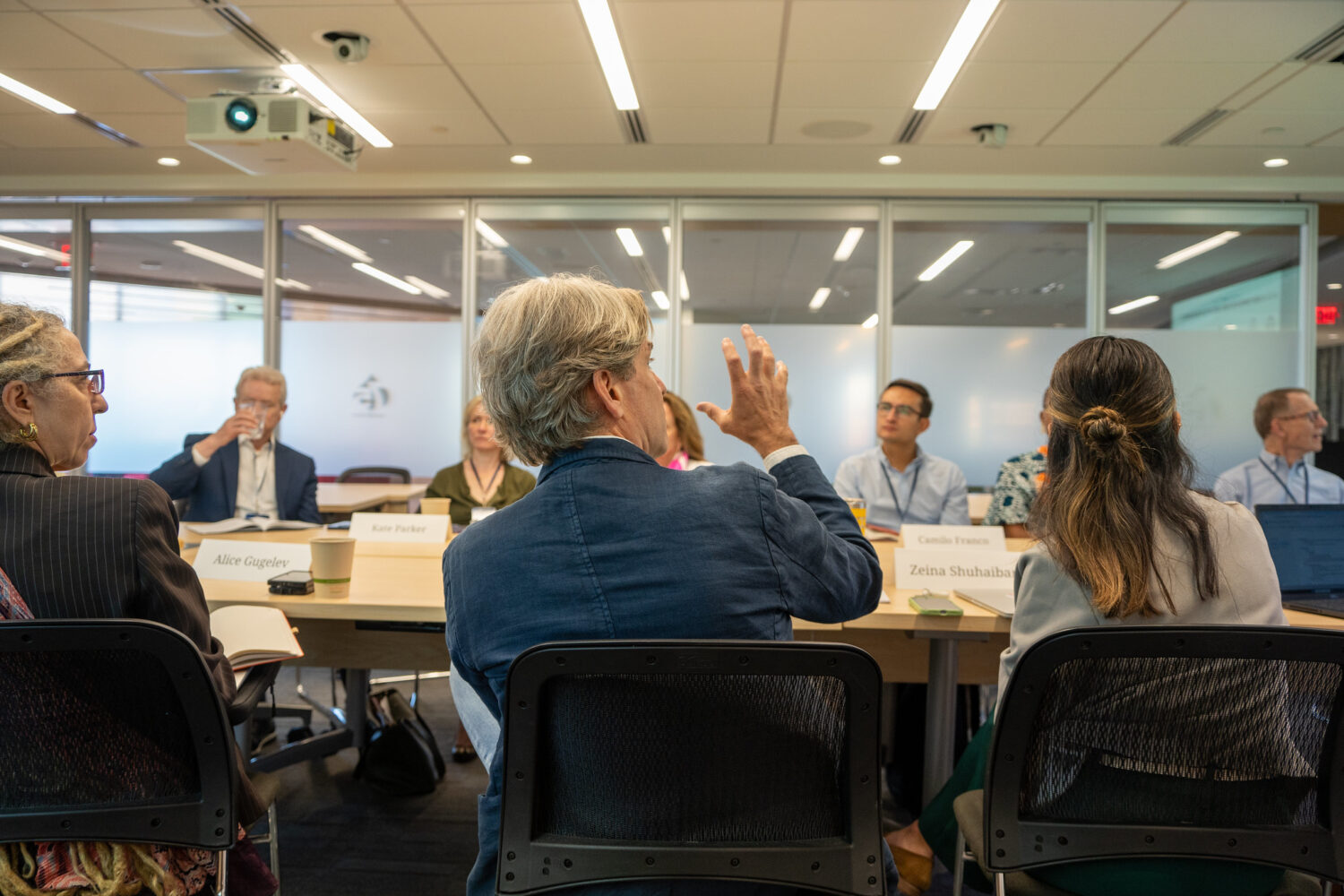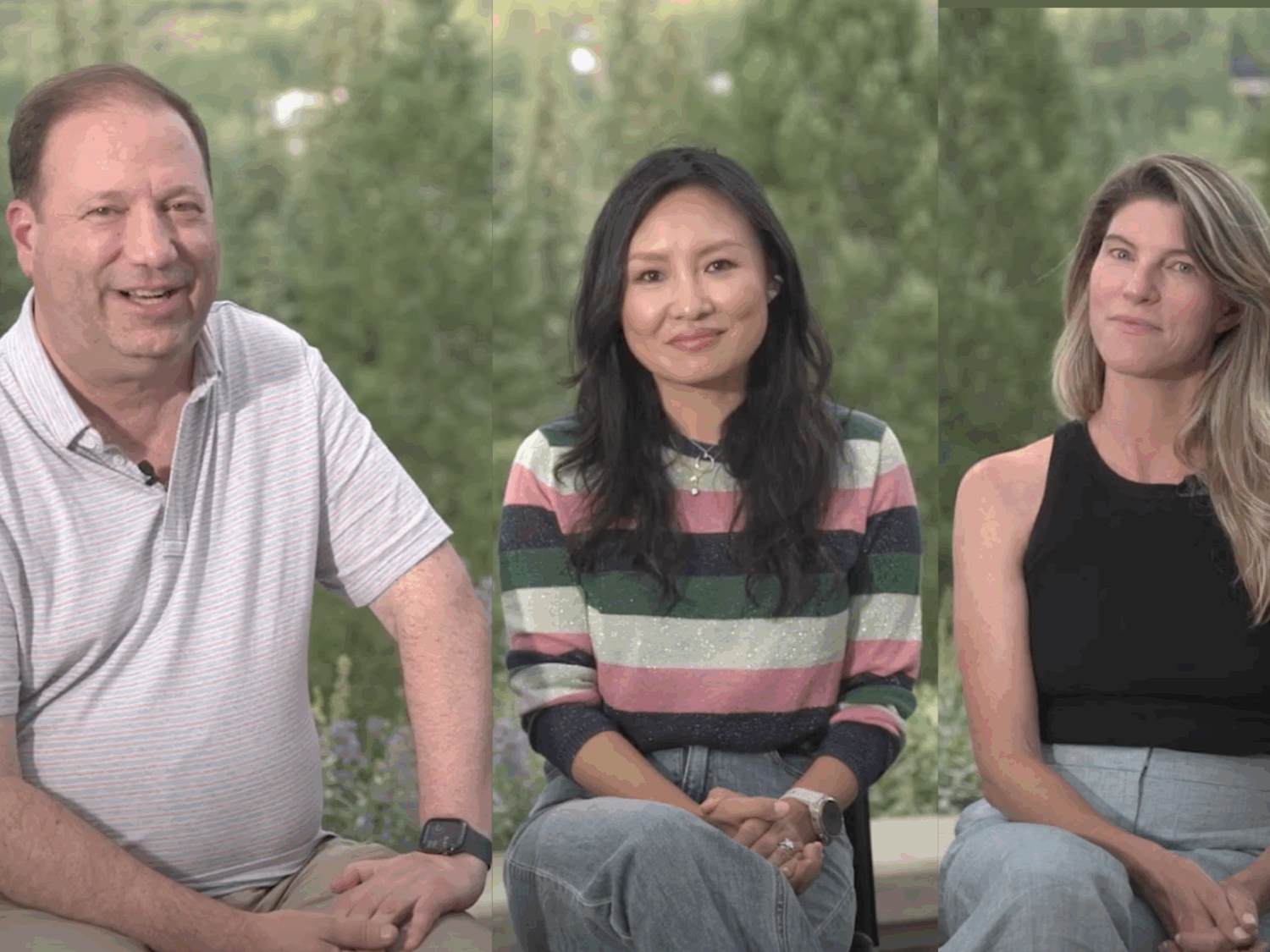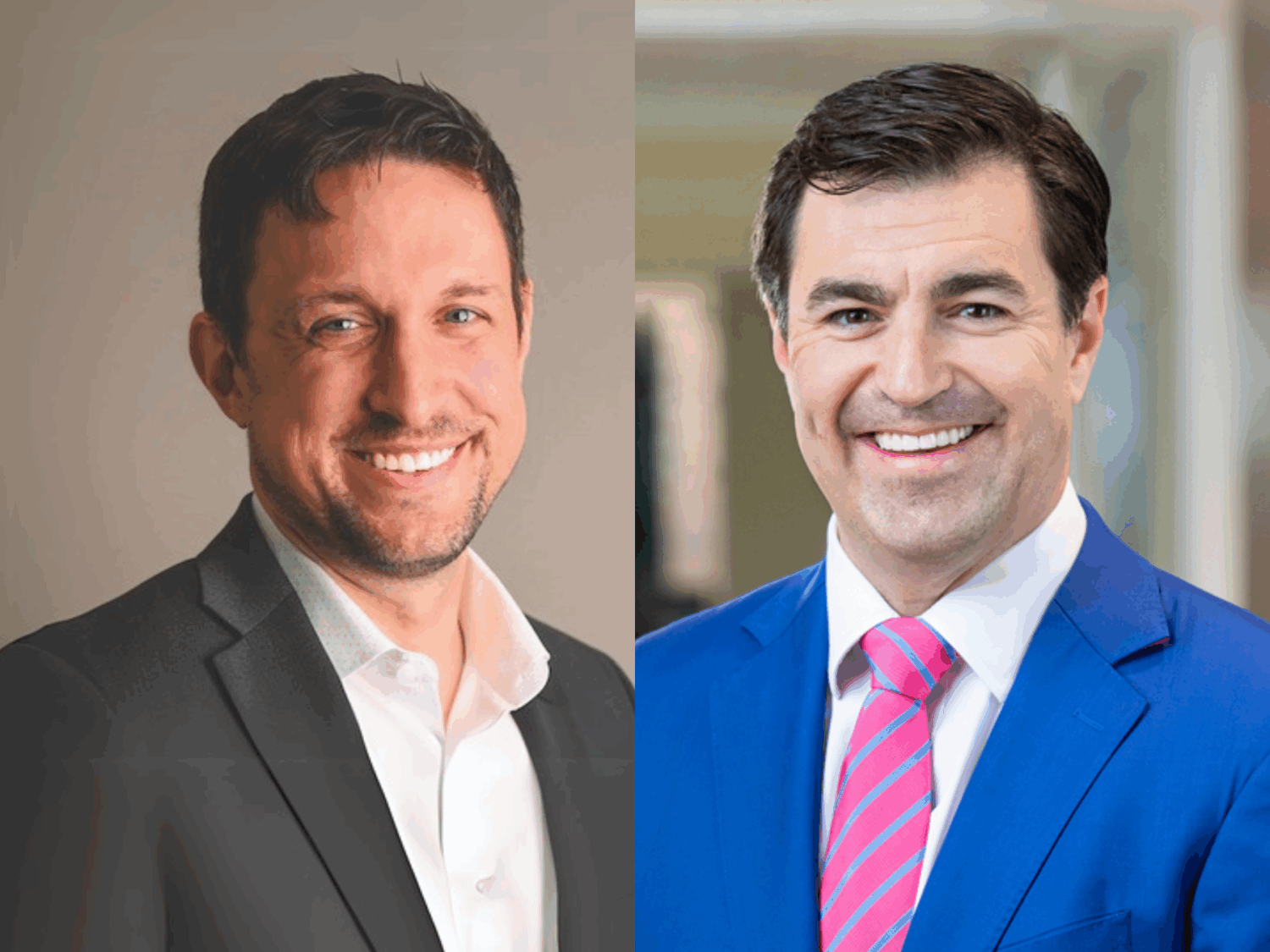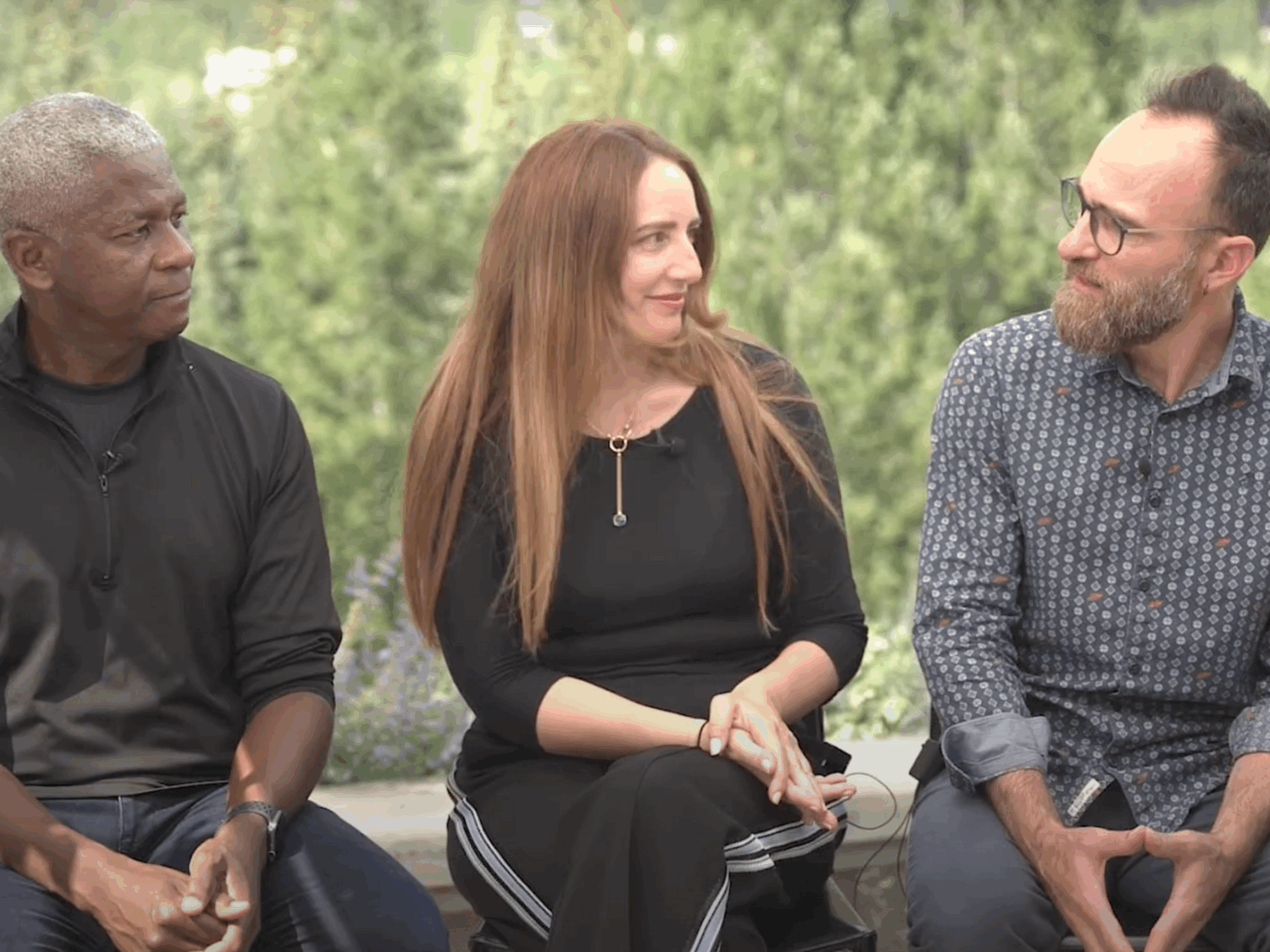You’ll notice that most of the stories in this issue, as in our last issue and our recent Impact Report, start with some variation of “After the pandemic struck, the program adapted and held virtual events that were not only surprising successes but moved the Institute’s work forward with a velocity the organizers would never have imagined possible.” (I hope you’ll also notice the near absence of the word “pivot,” which we tried to abolish in about the third month of lockdown.)
 But none of this sudden ability to adapt and find new ways to engage would have been possible without the true hero of the Aspen Institute: Ben Eyler, the managing associate in the audio visual department. In his three years with the Institute, Ben, along with his video colleagues Sam Abdelhamid, Lyle Cowlbeck, Javier Huaman, Raman Ravindran, and Matt Windholz, was philosophical and calm in the face of staff bafflement at what should have been simple arrangements to properly provision events for recording and eventual distribution. Then everyone had to learn Zoom in a gigantic hurry—and Ben’s seemingly endless reservoir of gracious good sense and reassurance was put to daily, and nightly, tests. As was his ability to be present not only for dozens of colleagues but his two children, ages two and five.
But none of this sudden ability to adapt and find new ways to engage would have been possible without the true hero of the Aspen Institute: Ben Eyler, the managing associate in the audio visual department. In his three years with the Institute, Ben, along with his video colleagues Sam Abdelhamid, Lyle Cowlbeck, Javier Huaman, Raman Ravindran, and Matt Windholz, was philosophical and calm in the face of staff bafflement at what should have been simple arrangements to properly provision events for recording and eventual distribution. Then everyone had to learn Zoom in a gigantic hurry—and Ben’s seemingly endless reservoir of gracious good sense and reassurance was put to daily, and nightly, tests. As was his ability to be present not only for dozens of colleagues but his two children, ages two and five.
Overnight, Ben became our Zoom Zen master. Screen sharing, polls, whiteboard collaboration, breakout rooms that could be seamlessly entered and exited, green rooms, backstage help available to all speakers and audience members, virtual backgrounds that didn’t make speakers look phantasmagorical—nothing was beyond Ben’s patient ability to show slightly panicky program organizers how to achieve virtual excellence, often a few days or hours before an important meeting.
I speak from experience. A two-day event that was to jump-start the Food & Society Program’s Food Is Medicine initiative with rich in-person bonding of like-minded researchers and policymakers who hadn’t met became two Zoom days that, in a familiar Institute story, were an improbable success and resulted in genuine bonding we would never have dreamed possible. We received sincerely admiring and somewhat surprised letters confirming our hopes.
 Who were participants really thanking? We might have hoped us, but we knew better. So do our colleagues across the Institute. They were thanking Ben, and a team that has calmly carried us all above waves we never imagined, keeping us on the true course we most want to navigate.
Who were participants really thanking? We might have hoped us, but we knew better. So do our colleagues across the Institute. They were thanking Ben, and a team that has calmly carried us all above waves we never imagined, keeping us on the true course we most want to navigate.

